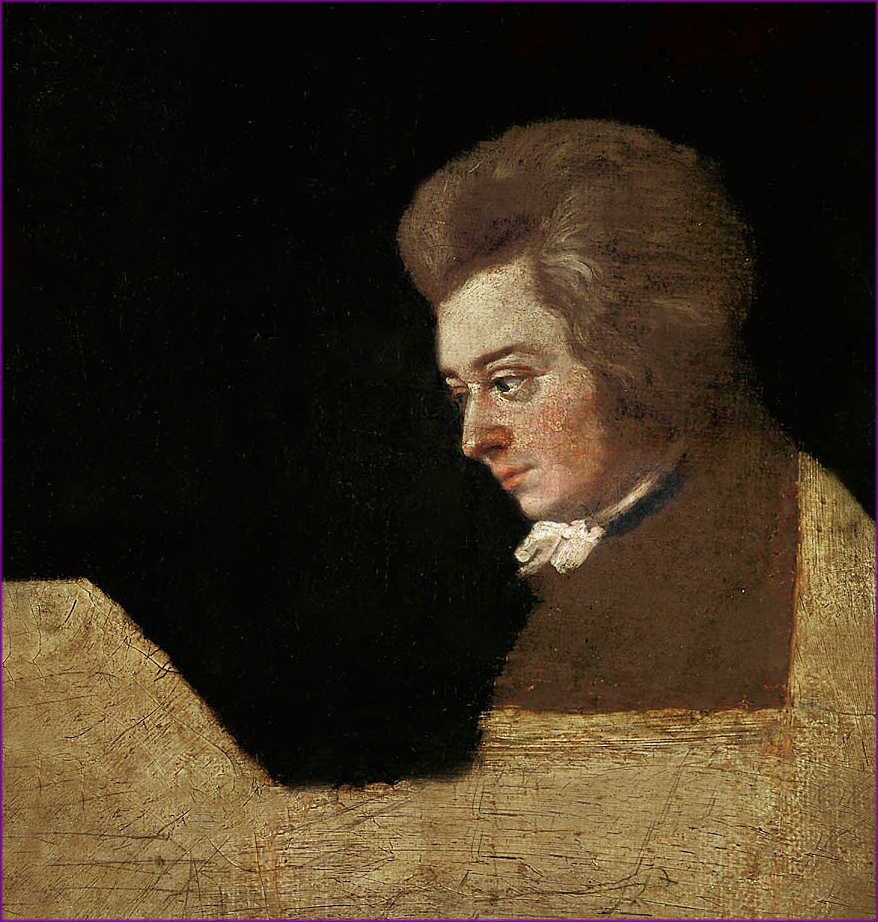The next time you are in the mood to stay home and watch a good movie I’d like to suggest 1984’s Academy Award winner Amadeus.

I understand that most people, when presented with the idea of watching a movie about a bunch of classical musicians in knee socks and wigs, respond first by cringing, then by asking “Why would I want to see a movie about Mozart?”
I would answer “Because it’s a really good movie.”
I know people who were dragged kicking and screaming to the movie when it was first released, but who’ve since enjoyed it again and again. After all, it did win eight Academy Awards, including Best Picture, Best Actor, and Best Director. (For some technical reason, Mozart himself wasn’t eligible for an Academy Award for the music, so somebody else won the award for Best Musical Score that year. Just goes to show what an Academy Award is really worth…)
In any case, Amadeus uses some of the greatest music ever composed to tell the story of this great composer and — dear to my heart –pianist. Fortunately the dialogue is in contemporary American English, so it’s easy to understand.
The plot portrays the Italian composer Antonio Salieri, a contemporary of Mozart, as jealous of Mozart’s talent. In his old age, Salieri confesses to a Catholic priest his jealousy and frustration with his own lack of talent when compared to Mozart, and his efforts to sabotage Mozart. In Salieri’s flashbacks he beautifully describes and explains Mozart’s music, which is an elemental part of what makes the movie so engaging.
Here are two short clips that gives some flavor of the movie:
I should say that the underlying plot of the movie is complete nonsense. It’s based on a scurrilous 1832 play by the Russian poet Aleksandr Pushkin, who built it on rumors that had lived for decades prior to Salieri’s death in 1825. It’s grossly unfair to Salieri.
While his music is largely forgotten today, Salieri remains a significant figure in the development of opera (if that’s your thing…), having written operas in German, French, and Italian, a notable accomplishment by any standard. He also taught the composers Ludwig von Beethoven, Franz Liszt, and Franz Schubert. What’s more, after Mozart’s death in 1791, Salieri taught Mozart’s youngest son, Franz, who showed some of his father’s natural talent and who went on to become a moderately successful musician and composer in his own right. A music teacher doesn’t gain students of that caliber unless he or she is a tremendous talent, which Antonio Salieri certainly was.
So never mind that the plot is pure fiction. Check out this movie. You’ll be glad you did.
UPDATE: At some point a “Director’s Cut” was released on DVD. This has added material that isn’t suitable for children, defames Constanza Mozart, and changed the rating from PG to R. Given a choice, I’d certainly stick with the original version.
Copyright 2017 — 2021 by Toni Pfau. All rights reserved.
Contact Toni Pfau at:
503-358-5359
13530 N.W. Cornell Road
Portland, OR 97229
Toni.L.Pfau@gmail.com
